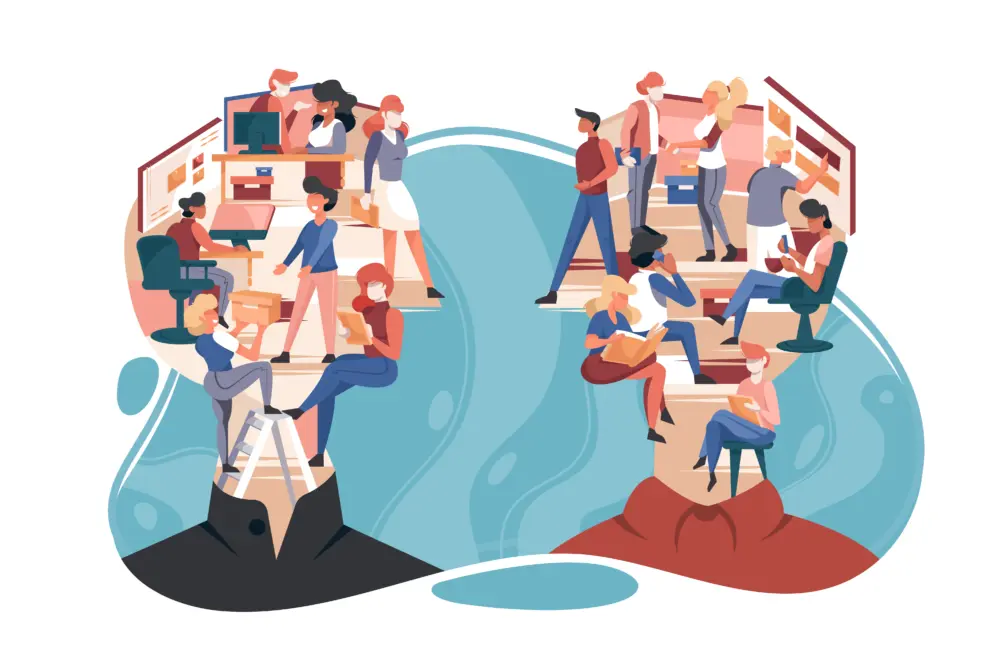The therapeutic relationship between a therapist and a client is often considered the cornerstone of effective counseling. This connection forms the basis for healing and personal growth, transcending traditional roles to create a space where trust, understanding, and empathy flourish. In this article, we will explore the intricate elements that contribute to a successful therapeutic relationship, their significance in the therapeutic process, and their impact on the client’s journey toward self-discovery and healing.
Building Trust
Trust is the bedrock of any therapeutic relationship. Clients must feel secure and confident in their therapist’s competence, empathy, and genuine concern for their well-being. Therapists, in turn, must establish a safe and non-judgmental environment, encouraging open communication and vulnerability. The process of building trust is gradual, requiring time and consistency, but it lays the foundation for deeper exploration and healing.
Empathy and Understanding
Central to the relationship is the therapist’s ability to empathize and truly understand the client’s experiences, emotions, and perspectives. Empathy goes beyond sympathy; it involves actively listening, validating feelings, and demonstrating a genuine commitment to comprehending the client’s unique narrative. Through empathetic attunement, therapists foster an environment where clients feel seen and heard, promoting a sense of validation and acceptance.
Transparency and Boundaries
Maintaining clear and ethical boundaries is essential in fostering a healthy professional relationships. Therapists must communicate expectations, limits, and the nature of the therapeutic process from the outset. Transparency builds a sense of safety, ensuring that clients understand the parameters of the relationship and can engage in the therapeutic journey with confidence.
Collaborative Partnership
A successful therapeutic relationship is characterized by collaboration rather than a one-sided exchange. Therapists and clients work together as partners, co-creating goals and strategies for personal growth. This collaborative approach empowers clients, fostering a sense of agency and ownership in their healing process. Therapists act as guides, offering support, insights, and tools, but ultimately, the client is the protagonist in their own narrative.
Challenges and Resilience
Navigating challenges is an inherent part of any therapeutic relationship. Transference, countertransference, and unexpected obstacles may arise, requiring both therapist and client to exhibit resilience. Open communication about difficulties strengthens the therapeutic bond, providing an opportunity for mutual understanding and growth.
The Essential Role of Building the Therapeutic Relationship
The therapeutic relationship between a therapist and a client is not just a backdrop to counseling; it is the scaffolding upon which the entire therapeutic process is constructed. The significance of intentionally and thoughtfully building this relationship cannot be overstated.
Foundation for Trust
Trust is the cornerstone of any effective therapeutic relationship. Clients often come with a sense of vulnerability, and trust is the bridge that allows them to share their deepest fears, thoughts, and emotions. A well-established therapeutic relationship fosters a sense of safety, enabling clients to explore their inner world without fear of judgment.
Facilitates Open Communication
Effective communication is at the heart of any successful counseling endeavor. A strong relationship encourages open and honest dialogue. When clients feel heard and understood, they are more likely to articulate their thoughts and feelings, leading to a deeper exploration of the issues at hand.
Enhances Client Engagement
A positive and nurturing therapeutic relationship increases client engagement. When individuals feel a genuine connection with their therapist, they are more motivated to actively participate in the therapeutic process. This engagement is vital for the success of therapy and the achievement of therapeutic goals.
Promotes Emotional Regulation
Emotions play a central role in the therapeutic journey. The therapeutic relationship acts as a safe container for the expression and regulation of emotions. Clients are encouraged to explore and process their feelings within the secure bounds of the therapeutic alliance, fostering emotional growth and resilience.

Catalyst for Personal Growth
The therapeutic relationship serves as a catalyst for personal growth and self-discovery. Through the empathetic understanding and support of the therapist, clients gain insights into their patterns of thinking and behavior. This awareness becomes a springboard for positive change and the development of healthier coping mechanisms.
Addresses Resistance and Defense Mechanisms
Resistance is a common aspect of therapy, often manifesting as a defense mechanism against discomfort. A strong therapeutic relationship allows therapists to navigate and address resistance with sensitivity. By understanding the roots of resistance, therapists can guide clients toward breaking through barriers and achieving meaningful breakthroughs.
Tailors Treatment to Individual Needs
Every client is unique, and a personalized approach is crucial for successful therapy. The therapeutic relationship provides therapists with valuable insights into the individual needs, preferences, and strengths of each client. This understanding allows for the tailoring of therapeutic interventions to maximize effectiveness.
Long-Term Impact on Well-being
Beyond the immediate goals of therapy, the quality of the therapeutic relationship can have lasting effects on an individual’s well-being. A positive experience in therapy fosters a sense of empowerment and resilience, equipping clients with the tools they need to navigate life’s challenges long after the formal therapeutic relationship concludes.
In conclusion, the process of intentionally building the therapeutic relationship is not merely a preparatory phase but an ongoing and integral aspect of the therapeutic journey. As therapists invest time and effort in cultivating a strong alliance with their clients, they lay the groundwork for profound healing, self-discovery, and sustained well-being.
Ready to begin? Start your online therapy journey today. Book your first session now.




